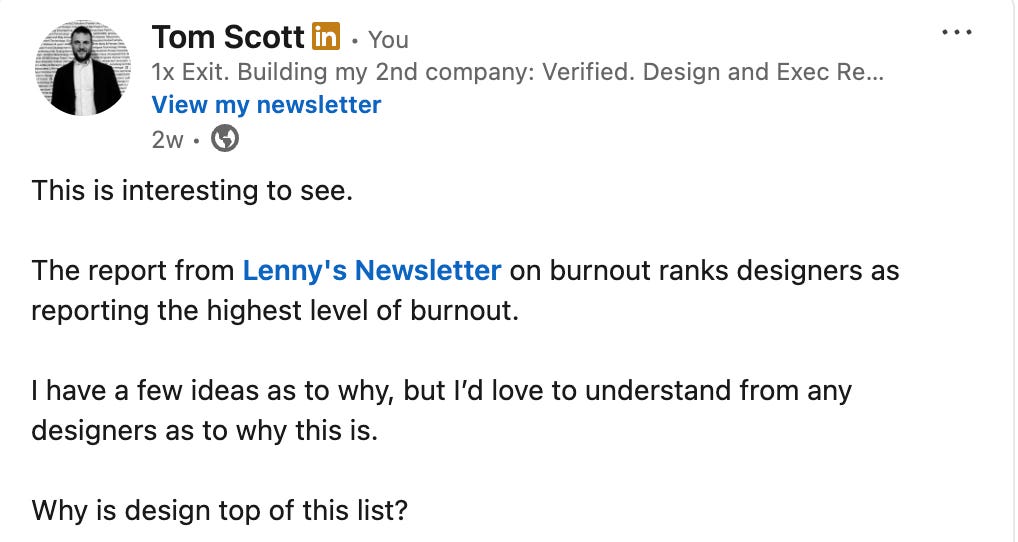Gen Z High Career Standards Are Paying The Price Of A Broken Market

As Gen Z graduates enter a broken job market, their high-career standards amid workplace obstacles ... More are causing some of them to emotionally unravel, according to some reports.
gettyGen Z comprises the largest generation in the workplace and is expected to make up 30% of the workforce by 2030. But their influence is already here, along with their expectations around leadership, communication and culture reshaping the rules of the American workplace. But as Gen Zers enter the job market with bold expectations amid a tanking economy, increasing AI dominance and rising layoffs, landing a job isn’t easy. Their high career standards, within a system fraught with problems, is causing them to emotionally unravel in the search process.
Perhaps the best part of Gen Z is that they set high standards whether it’s promoting healthy work cultures, mentoring their senior employees or raising the bar for side hustles. Don’t let anyone tell you Gen Zers are slackers. Andy Kurtzig, CEO of Pearl.com, told me that Gen Z is using AI to become what he calls "solopreneurs."
“We’re watching a generational pivot in real time. Gen Z is taking the same tools corporations use to eliminate jobs and flipping the script to create opportunities for themselves,” Kurtzig explains. “They’re using AI to re-imagine career paths, build brands and monetize skills that traditional workplaces often overlook. What used to take funding, mentorship and institutional access, they’re now doing with a laptop and a chatbot.”
A national survey by Superprof shows that Gen Z graduates are setting high standards for job hunts, with 40% saying a a toxic work culture is a deal breaker, and 27% refusing to tolerate financial secrecy or low pay. They want a well-paying job, but their priorities are jobs that also provide work-life balance, meaningful work, flexible hours and well-being. But that’s not the 2025 job market they’re stepping into.
“Gen Z isn’t just job-hunting—they’re curating an experience,” states Mina Ozdemir, PR manager at Superprof. “They want work that aligns with their values, lets them grow and doesn’t burn them out. If the vibes are off, they’re out."
I spoke with Amanda Schneider, founder and president of ThinkLab, who told me that their latest research shows that Gen Z is quietly hoping to rewrite the old apprenticeship model for a new era. “While older generations often insist that learning only happens through shadowing and in-person osmosis, Gen Z is proving that’s no longer true—or at least not entirely true.”
But despite their standards of excellence, is Gen Z raising the bar too high for their own good? Clarify Capital surveyed 1,000 employees on how much time, money and emotional energy it takes to get hired in today’s job market. Findings show that Gen Z is footing the emotional and financial bill for a broken system, fueled by rising living costs, minimal financial buffers and a hiring landscape flooded with ghost jobs and automated rejections.
An additional discovery? Gen Z is emotionally unraveling in the job seeking process. Out of the 86% of job hunters, 60% of Gen Z say the churn-and-burn job market is leaving them emotionally stressed and disillusioned before they even begin. Other key findings include:
Some experts contend that the problem isn’t that Gen Z’s standards are unrealistic. It’s that they’re better than the broken market they’re entering. For example, Michael Baynes, co-founder and CEO of Clarify Capital, told me that Gen Z is paying the price for a broken system in their job hunting.
“The hiring landscape in 2025 has become increasingly inefficient and difficult to navigate,” Baynes says. "Ghost listings, automated rejections and pay-to-play application systems are pushing out young applicants before many have a chance to apply. Notably, three in five applicants abandon the process mid-way, and 46% encounter scams.”
Baynes asserts that the workforce has created an entry system that’s burning Gen Z out before they even clock in. He further contends that there are times when the current job market treats entry-level employment as if it’s a luxury. He describes multi-step interviews, AI filters and rising costs just to apply as examples of the convoluted process.
“With nearly 90% lacking savings and half getting no offers, today’s job search can be financially unsustainable and emotionally crushing,” Baynes points out. "This generation is being asked to invest time, money and energy into a process that very often yields nothing in return."
Moira Corcoran, CPA and finance expert on Pearl, believes their data indicates that Americans, particularly younger generations, are feeling a sense of hopelessness when it comes to their financial outlook.
“With so many saying saving feels futile at this point, many are looking to make drastic changes to their lives in a way that’s reminiscent of the 2008 recession,” Corcoran points out. "Between postponing major life decisions like having a child or owning a home to cutting back on summer travel, it is clear consumers are approaching a state of panic–they need ways to access affordable, professional financial advice to navigate these ever-changing economic conditions.”
According to Joseph Semrai, CEO and founder of Context, AI is making it even harder for new grads to get their foot in the door because traditional junior roles no longer exist, and he believes these roles need to be redesigned so that his generation doesn’t get pushed out.
“Artificial intelligence is transforming the landscape for early-career roles in a way reminiscent of robotics’ disruption of manufacturing jobs decades ago," Semrai observes. “Entry-level positions traditionally built around tasks like basic data processing, document creation and introductory programming are increasingly automated, presenting new challenges for Gen Z graduates looking to develop foundational skills. However, the strategic response should not be to limit AI’s integration but rather to rethink how we structure apprenticeship and early training.”
One way to accommodate Gen Z high career standards is Semrai’s suggestion that companies actively redesign junior positions around meaningful collaboration within AI systems. “Young professionals should be engaging closely with AI-generated outputs, auditing the reasoning behind automated decisions, challenging assumptions and refining final results,” Semrai concludes. "Recent research from institutions like MIT Sloan underscores that entry-level employees gain the most when they actively interact with AI, rather than passively consuming its outputs.”









